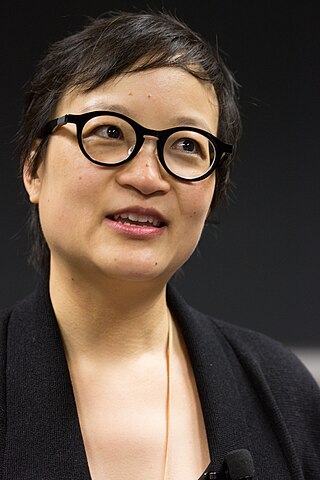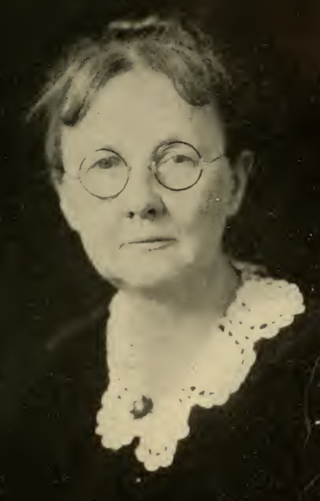Related Research Articles
Nannerl "Nan" Overholser Keohane is an American political theorist and former president of Wellesley College and Duke University. Until September 2014, Keohane was the Laurance S. Rockefeller Distinguished Visiting Professor of Public Affairs and the University Center for Human Values at Princeton University. She is now a professor in social sciences at the Institute for Advanced Study, Princeton, where she is researching the theory and practice of leadership in democratic societies.

Joseph Raz was an Israeli legal, moral and political philosopher. He was an advocate of legal positivism and is known for his conception of perfectionist liberalism. Raz spent most of his career as a professor of philosophy of law at Balliol College, Oxford, and was latterly a part-time professor of law at Columbia University Law School and a part-time professor at King's College London. He received the Tang Prize in Rule of Law in 2018.
Women have made significant contributions to philosophy throughout the history of the discipline. Ancient examples include Maitreyi, Gargi Vachaknavi, Hipparchia of Maroneia and Arete of Cyrene. Some women philosophers were accepted during the medieval and modern eras, but none became part of the Western canon until the 20th and 21st century, when some sources indicate that Susanne Langer, G.E.M. Anscombe, Hannah Arendt and Simone de Beauvoir entered the canon.

Alicia Haydock Munnell is an American economist who is the Peter F. Drucker Professor of Management Sciences at Boston College's Carroll School of Management. Educated at Wellesley College, Boston University, and Harvard University, Munnell spent 20 years as an economist at the Federal Reserve Bank of Boston, where she researched wealth, savings, and retirement among American workers. She served in the Bill Clinton administration as Assistant Secretary of the Treasury for Economic Policy and as a member of the Council of Economic Advisers. Since 1997 she has been a professor at Boston College and director of its Center for Retirement Research, where she writes on retirement income policy.

Ruth Chang is an American philosopher and legal scholar who serves as the Professor and Chair of Jurisprudence at the University of Oxford, a Professorial Fellow of University College, Oxford, and an American professor of philosophy. She was previously a professor at Rutgers University from 1998 to 2019. She is known for her research on the incommensurability of values and on practical reason and normativity. She is also widely known for her work on decision-making and is lecturer or consultant on choice at institutions ranging from video-gaming to pharmaceuticals, the U.S. Navy, World Bank, and CIA.
Alison Mary Jaggar is an American feminist philosopher born in England. She is College Professor of Distinction in the Philosophy and Women and Gender Studies departments at the University of Colorado, Boulder and Distinguished Research Professor at the University of Birmingham in the United Kingdom. She was one of the first people to introduce feminist concerns in to philosophy.

Miriam Solomon is Professor of Philosophy and Chair of the Philosophy Department as well as Affiliated Professor of Women's Studies at Temple University. Solomon's work focuses on the philosophy of science, social epistemology, medical epistemology, medical ethics, and gender and science. Besides her academic appointments, she has published two books and a large number of peer reviewed journal articles, and she has served on the editorial boards of a number of major journals.
Juliet Floyd is professor of philosophy at Boston University. Her strongest research interests lie in early analytic philosophy and she has used early analytic philosophy as a lens to examine a diverse array of topics.
Amy Allen is a liberal arts research professor of philosophy and women's, gender, and sexuality studies at The Pennsylvania State University, where she is also head of department. Previously, she was the Parents distinguished research professor in the humanities, and professor of philosophy and gender and women's studies, at Dartmouth College, and was chair of its department of philosophy from 2006 to 2012. Her research takes a critical approach to feminist approaches of power, and attempts to broaden traditional feminist understandings of power to apply to transnational issues.
Rae Helen Langton, FBA is an Australian-British professor of philosophy. She is currently the Knightbridge Professor of Philosophy at the University of Cambridge. She has published widely on Immanuel Kant's philosophy, moral philosophy, political philosophy, metaphysics, and feminist philosophy. She is also well known for her work on pornography and objectification.
Ann E. Cudd is an American philosopher and academic. She is the president of Portland State University as of August 1, 2023. She was previously the provost and senior vice chancellor and professor of philosophy at the University of Pittsburgh and dean of the college and graduate school of arts and sciences at Boston University. She also served as vice provost and dean of undergraduate studies, as well as university distinguished professor of philosophy, at the University of Kansas, and was an affiliated faculty member in the Women, Gender, and Sexualities Studies Program during her time there. Cudd is considered one of the founders of analytical feminism, was a founding member of the Society for Analytical Feminism, and served as its president from 1995 to 1999. On March 10, 2023, Cudd was formally selected as the 11th president of Portland State University.
Elisabeth Camp is a professor of philosophy at Rutgers University. Camp's work has focused on forms of thought and speech that do not fit standard propositional models. She has written extensively about figurative speech such as sarcasm and metaphor, arguing that these forms of speech force listeners to reconsider their standard methods of delineating the difference between what is meant and what is said.

Lynne Tirrell is Professor of Philosophy at the University of Connecticut, where she is also affiliated with the Human Rights Institute. Much of the body of her work focuses on hate speech, especially the practical effects of linguistic practices in shaping the social conditions that make genocide and other significant acts of oppression possible. Her research started in the United States but quickly branched in to other regions of the world, and now focuses on Rwanda and the surrounding region. From 2014 to 2017, she also served as the chair of the APA Committee on Public Philosophy. Her current work develops an analysis of Toxic Speech, bringing philosophy and epidemiology into conversation.
Eva Feder Kittay is an American philosopher. She is Distinguished Professor of Philosophy (Emerita) at Stony Brook University. Her primary interests include feminist philosophy, ethics, social and political theory, metaphor, and the application of these disciplines to disability studies. Kittay has also attempted to bring philosophical concerns into the public spotlight, including leading The Women's Committee of One Hundred in 1995, an organization that opposed the perceived punitive nature of the social welfare reforms taking place in the United States at the time.
Holly Martin Smith is Distinguished Professor of Philosophy at Rutgers, the State University of New Jersey. Her publications focus on questions in normative ethics, moral responsibility and structural questions common to normative theories.

Eleanor Acheson McCulloch Gamble was an influential American psychologist from the late 19th century through the early 20th century. Gamble published most of her work on audition and memory influenced by Georg Elias Müller, Edward B. Titchener, Mary Whiton Calkins, and Ernst Heinrich Weber. Despite her chronic eye conditions she was successful in editing volumes of textbooks, her own papers, and directing many master's degree students. She earned her undergraduate degree from Wellesley College in 1889. She went on to obtain her doctorate from Cornell University in 1898. She held several teaching positions over the course of her career and was a member of several influential organizations including the American Psychological Association (APA). Gamble was a distinguished and well-liked professor at Wellesley College for more than two decades, and by 1930 she was the head of the Department of Philosophy and Psychology following the death of Mary Whiton Calkins. At the time of her death she was professor of psychology and director of the psychological laboratory at Wellesley College.

Samantha J. Brennan is a British-born philosopher and scholar of women's studies who is currently dean of the College of Arts and faculty member in the Department of Philosophy at the University of Guelph. She was previously a professor in the Department of Women's Studies and Feminist Research at Western University, Canada. She remains a member of Western's Rotman Institute of Philosophy and the graduate faculty of the Departments of Political Science and of Philosophy. Brennan was Department Chair of Philosophy at Western from 2002 to 2007, and 2008–2011. She is a past president of the Canadian Philosophical Association (2017–18).

Ruth Anna Putnam was an American philosopher and Professor of Philosophy at Wellesley College.
Eleanor Alice Prosser (1922–1991) was an American theater historian, literary critic, professor, and actress.
Rodney Bertolt is an American philosopher and Professor Emeritus of Philosophy at Purdue University. Bertolt is known for his works on speech acts. He is a former president of Indiana Philosophical Association (1983–1984).
References
- 1 2 3 4 DesAutels, Peggy. "Mary Kate McGowan: January 2014". Highlighted Philosophers. American Philosophical Association. Retrieved 5 January 2014.
- 1 2 "Mary Kate McGowan | Wellesley college". Wellesley College. Retrieved 5 January 2014.
- 1 2 3 4 Kate McGowan, Mary. "Curriculum Vitae". Wellesley College. Retrieved 16 February 2021.
- ↑ Saul, Jennifer. "Feminist Philosophy of Language". Stanford Encyclopedia of Philosophy. Stanford University. Retrieved 5 January 2014.